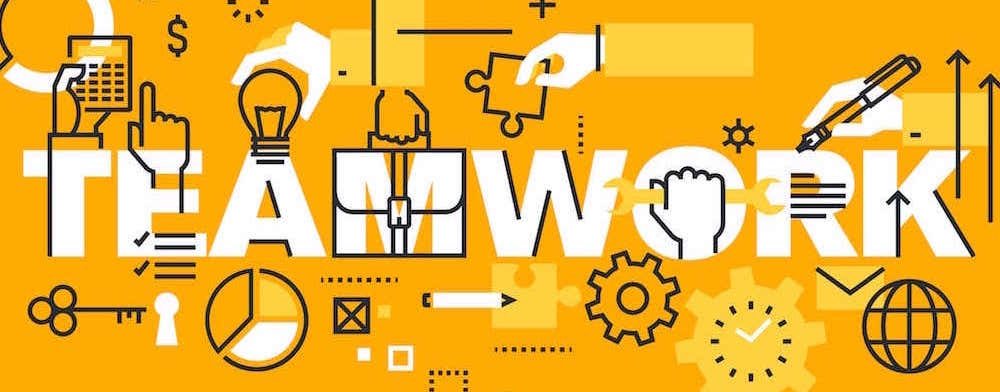There’s no ‘me’ in advertising.

Advertising is a team sport. How you inspire, enroll, persuade, educate and cajole the rest of your team (and how they do the same to you) is critical to an ad’s success.
Let’s look at the various roles, section by section, to see how you can make the most of them, or at least avoid having them rain on your parade.
In the creative department it starts with your partner. I used to come into work an hour or so before one of my art directors (actually, all of them. What is it with ADs and punctuality?), so after half an hour of thinking about the brief, in addition to whatever ideas had occurred to me in front of the TV the previous night, I was raring to go. However, he just wanted to sit down and have a coffee first, so he wasn’t very receptive to my puppyish positivity. I thought he’d appreciate me getting a head start on the brief, but I regularly forgot to look at things from his perspective, leaving my ideas to climb a mountainous lack of enthusiasm.
Your art director or copywriter might need a moment to think about that idea you believe to be an obvious Grand Prix-winner. They might be an introvert who needs to have their best stuff coaxed out of them. They might want to methodically consider all paths before choosing the concept you decide to show your CD.
If you don’t work out how best to navigate those vagaries you’re not really doing your job as an advertising person: consider the target market; communicate in the tone of voice that will win it over; work out how your message sits amongst the competition; use the right media channel…
And it’s the same when you see your CD/ECD/CCO. Are they more receptive in the morning or right after lunch? Do they respond better to cheeky irreverence or heartfelt pleas? Do they prefer you to do the talking, or to shut up and listen to them? Get them on your side and (depending on the agency) they can squeeze the account team, smooth-talk the client, or call up their mate who happens to run Dougal Wilson’s production company.
Talking of the account team, if they’re not on your side your ad will probably die in the toilet. I don’t mean you have to be best buddies, but you have to be aligned on how to sell the ad so that its quality is protected. If they come back from the client with an intact visual but a ruined headline, they didn’t do their job very well, but neither did you.
If you’re not going to the presentation, you’re entrusting them with your baby. Make sure you give them the equivalent of a bottle of warm milk and a favourite teddy bear, and anything else you need to make sure your little one comes back safe and happy.
They can also get more time and budget out of the client, two things that can make a critical difference to the success of your ad. Arm them with examples of the great things that might happen if they work some extra magic. Inspire them with what that could do for their career. Buy them a pint (I once bought an account team a bottle of Champagne for selling a particularly weird ad. Do things like that. It’ll get you a good reputation, and it’s the right thing to do).
Next is the client. Yes, they need all the persuasion everyone else needs, and then some. Remember: there are good and bad clients, and some need more help than others. Don’t assume anything, and that goes for all subjective interpretations of your concept. Bulletproof the whole thing, or suffer the consequences.
If you’re doing the presenting, do your homework: what’s the client like? What are they trying to accomplish? Do they need their hand held or their fire stoked? They’re probably the most critical link in the chain. Keep that link strong.
Then there’s the production partners: the art buyer, the agency producer, the photographer, the director, the music people, the post house… One of my old producers had a direct line to Jonathan Glazer (he loved the script but the client didn’t). Great art buyers have been great at finding the perfect illustrator, and calling in a favour to make sure they were available. Making sure a director knows why you chose them and how this job could add a new arrow to their quiver is as important as all those Kubrick references you bring up in the pre-prod.
Right at the end is the media company. Their insight into where your ad might work best can be essential, particularly for something experimental. And in this age of digital media, experiential events and influencer marketing, the right context and placement for your work could be the difference between a big bang and a damp squib.
And the final person, the one you’re most likely to forget, is you. Keep an eye on what you say and do, how that eye-roll can drain the energy out of a meeting, or how a needless dig in the agency bar can set up a revenge attack that kills your best work.
Like everything in life, it’s all down to you. Just make sure every single thing is perfect and you can’t fail.